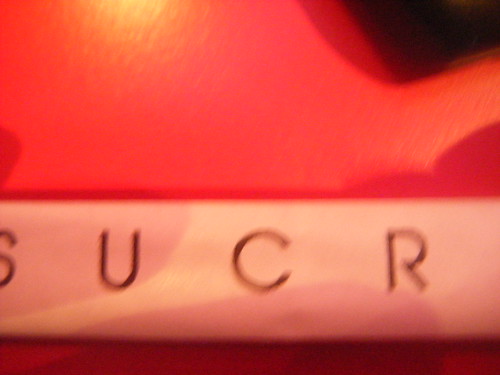
By the time the new millennium approached, I’d been watching the American sitcom, ‘Sex and the City’ for a year. It was such a fresh concept for television, something that finally displayed the somewhat guilty pleasures and aspirations of women. They covered topics we only divulge with our inner circle, they liberated us by being honest, outspoken and completely outrageous. Carrie Bradshaw, the focal character of Sex and the City, spearheaded all possible connotations of the show.
First and foremost, she was at the forefront of decedent fashion – resulting in a cultish frenzy amongst women globally. Suddenly, Manolo Blahnik, Dolce & Gabbana and a plethora of other designer labels became intensely desired. It’s not Carrie’s expensive taste that makes me view her as imperative to this decade (although this could explain the state of the economy if people have taken heed); it is her ability to be individual through her style. Carrie Bradshaw was always herself and always original in the clothes she wore, giving confidence to others to do the same. Fashion is about creativity and self expression; and as a character she gave inspiration to all and communicated the liberty of being yourself.
As is evident in the show’s title, another regular topic covered was sex. Sex, love and relationships. The show accurately pinpointed the new wave of the decade: the end of romance. Instead of wining and dining and wooing, we’d entered an age of nailing and bailing. Sexual freedom reached a new stratum in the noughties, and although I don’t personally feel that this is something to be celebrated, the show tackled a common occurrence in society. I always admired Carrie’s desire to fall in all-consuming, powerfully infinite love. Her quest to find Mr. Right was both amusing and relatable. It was a comfort to know that all women go through woes with their romantic life – and although her decisions may not always be wise or advisable to follow, it was reassuring to know that even the most luxurious of women have the same problems.
Carrie Bradshaw is also an apt symbol of female independence. Living alone, having a lucrative career and being a strong single female. She has been a positive role model (minus the smoking, casual sex and shoe addiction) for women – to demonstrate that you can go it alone and be successful. Female independence has progressed greatly throughout the noughties with an increase of single mums, career women and a consequent decrease in ‘needing’ a man. One of the most memorable quotes for me was in the last ever episode, “the most exciting, challenging and significant relationship of all is the one you have with yourself.” I find this a realisation, as I know I often forget the merit of autonomy.
Carrie Bradshaw has become an iconic character of the decade. She has been a virtual companion, experiencing the things that all women go through, giving comfort and a sense of light hearted humour to all who watched her. Finally, women have their own MOTD, their own Top Gear – in the form of lustful gratification, designer labels, the beauty of independence and a cosmopolitan to wash it all down with. Watching the show was a welcomed escapism, taking women to their wildest fantisies of the high life yet holding morals that were universally applicable. Carrie Bradshaw not only brought refuge and reassurance to women, she also aided the show to cover everything in relevance in the noughties. Through this decade she has entertained, supported and been absolutely fabulous till the end.
























No comments:
Post a Comment